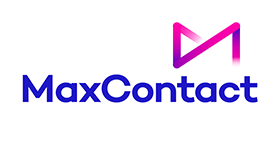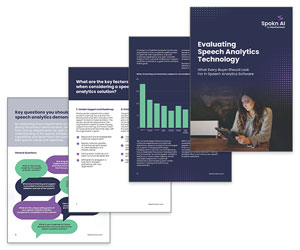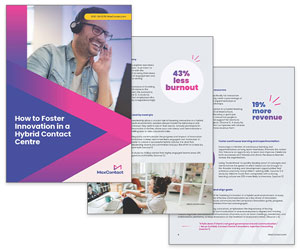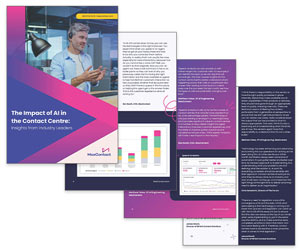In a recent survey, the Financial Conduct Authority (FCA) warned that 28 million adults in the UK were now deemed “vulnerable”. If you take payments for client businesses, or collect debts, this is a hugely important finding.
The FCA recently widened its definition of a vulnerable customer. While it includes more commonly known groups, such as the elderly and those with certain health conditions, it now also includes individuals that are sometimes more difficult to identify, like people with addictions, those who need care from others and those with low financial resilience.
In many ways this was a progressive step, and the concept of vulnerability has shed a lot of stigma over the last few years. Today, people are more open about these issues, which means they’re more likely to seek help.
That’s particularly important when you consider that, as the FCA survey shows, many more people have found themselves financially vulnerable, with a 15% rise in people feeling financially vulnerable since the start of the pandemic.
Identifying Vulnerable Customers
At the same time, the increase in the number of vulnerable people creates additional workload for companies that have a duty to identify them in their own customer base and during any sales process.
The FCA identifies a vulnerable customer as someone who, owing to their personal circumstances, is especially susceptible to harm, particularly when a firm is not acting with appropriate levels of care.
The FCA goes on to say that, “vulnerable consumers, especially those who may not be financially resilient, are more likely to make mistakes in their decisions about buying and using financial services.”
That’s important for businesses to know, but the fact is that it’s not always easy to identify vulnerable people from basic information provided on a form, or even during a phone call.
Despite recent progress, customers can sometimes still feel stigma around mental health, poverty and poor literacy levels. In fact, customers may be reluctant to bring up a host of issues that would identify them as vulnerable to your agents.
Significant Fines
Why is any of this an issue for businesses? Partly, it’s because good companies don’t want to increase the stress on vulnerable people by agreeing payment plans with them that aren’t realistically achievable.
And partly it’s because the FCA expects firms to exercise particular care where consumers may be vulnerable. It can fine businesses significant sums for failing to support vulnerable people correctly when they fall into arrears.
But the question is, how can your organisation identify and serve vulnerable people if you can’t identify them easily?
Relevant Checks
For a start, Business Process Outsourcing (BPO) firms acting for relevant clients (such as loan providers, debt collection firms and others collecting regular payments) must undertake relevant affordability and vulnerability checks, including asking customers about their income and regular household expenses.
It’s also important that staff be trained to not only ask the right questions, but to truly listen to answers and pick out words and phrases that might identify someone as vulnerable. Which could be challenging when dealing with lots of customers, every day.
Agents might decide that a customer doesn’t have a clear understanding of the terms of an agreement, for example, or a customer might be overly hesitant when answering questions on affordability.
But even so, identifying vulnerable people who don’t willingly offer the information is a problem for the industry. The FCA admits that one of the challenges firms regularly highlight is the fact that, “customers are often unwilling, unable, or do not understand why or how to disclose vulnerability.”
The Case for Speech Analytics
Given the scale of the challenge, businesses need to use all the tools at their disposal, from well-prepared scripts to well-trained agents, to identify vulnerable customers.
And increasingly, many of them are turning to speech analytics to help. A modern speech analytics platform doesn’t just capture the words spoken, it can capture HOW they are spoken. For example, it can highlight uncertainty in a customer response.
In other words, a customer may agree to a payment schedule, but the uncertainty and hesitancy in the way they agree to it may indicate vulnerability, and a higher risk of defaulting. The software automatically identifies these potentially vulnerable customers so that the business can track them and take further action if necessary.
It’s all down to the software’s Emotional Index (EI), which in the best solutions is gradually refined by machine learning over time, so it gets better at identifying vulnerable customers as more and more data is fed through the system. The EI can also be manually tweaked to add additional levels of refinement.
None of this takes up any more of your agents’ time. The software sifts through thousands of conversations automatically, only flagging those conversations that may suggest customer vulnerability. With the FCA getting increasingly strict on the issue, these are the calls you need to know about.
Speech Analytics From MaxContact
MaxContact offers the award-winning speech analytics platform to help identify vulnerable customers early, so you can support them in line with FCA recommendations.
As well as all the features mentioned above, MaxContact’s speech analytics solution comes with FCA vulnerabilities pre-programmed in, so it’s primed to look out for customers, showing evidence of:
- Addiction – such as alcohol and drug use and problem gambling
- Caring – having a carer, bereavement, recent divorce, returning from military
- Finance – affordability issues
- Learning – autism, dyslexia
- Medical – from terminal illness all the way through to ADHD or a poor standard of English
As well as helping to identify vulnerable people directly, speech analytics can flag up conversations that can then be used for agent training, creating a cycle of continual improvement.
The FCA is focusing more and more on the treatment of vulnerable people, and businesses that offer financial services have to keep up if they want to avoid fines and reputational damage. But you can’t offer better services to vulnerable people if you don’t know who they are. Speech analytics is an invaluable tool for businesses determined to do the right thing.
For more information about MaxContact - visit the MaxContact Website
Call Centre Helper is not responsible for the content of these guest blog posts. The opinions expressed in this article are those of the author, and do not necessarily reflect those of Call Centre Helper.
Author: MaxContact
Published On: 15th Sep 2021
Read more about - Guest Blogs, MaxContact






 MaxContact is customer engagement software that goes above and beyond to build smarter customer experiences. Our platform is packed with powerful features, accessible for businesses large and small, and ensures organisations can operate compliantly.
MaxContact is customer engagement software that goes above and beyond to build smarter customer experiences. Our platform is packed with powerful features, accessible for businesses large and small, and ensures organisations can operate compliantly. 











